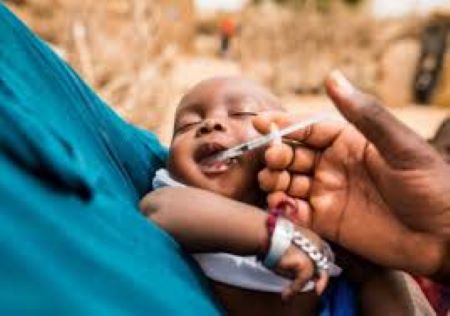The Kaduna State Planning and Budget Commission (PBC), supported by UNICEF, on Tuesday mobilized North-Central States to strengthen social budgeting for child-sensitive sectors in Nigeria. The states involved are Nasarawa, Kogi, Benue, Niger, Plateau, and Kwara.
Speaking at the zonal strategic advocacy policy dialogue in Keffi, Nasarawa State, the Chief of Social Policy at UNICEF Nigeria, Hamidou Poufon, lamented the rise in poverty.
He also decried weak social services indicators, as reflected in various national and sub-national surveys. Poufon was represented by Wakidara Akila, the Social Policy Officer at UNICEF’s Kaduna Field Office.
He said the engagement aligned with UNICEF’s global programme framework of working with governments to support data and evidence generation. This aims to advocate for greater and better public investment in children, as well as inform sector reforms.
Poufon explained that the programme sought to collaboratively chart a path to adequately and sustainably finance the social sectors in Kaduna and the North-Central region of Nigeria. This emphasizes increased public allocation and expenditure for children to realize their rights and well-being.
“We hope to share experiences and learning, identify challenges, and explore opportunities to address these gaps. We will also identify financing options for child-focused services and programs using the fiscal space diamond,” he said.
Poufon also noted that the engagement would properly document the challenges hindering effective public allocation and expenditure in the social sector. It will also provide recommendations on how to improve social sector allocations and expenditures.
Also speaking, Rabi Salisu, Kaduna State’s Commissioner for Human Services and Social Development, stressed the importance of children and their social well-being. Salisu noted that Kaduna State differed from others in terms of child policies, which are active. She added that many North-West states have unimplemented policies and missed opportunities due to cultural, religious, and ethnic backgrounds.
Salisu emphasized that these cultural, religious, and ethnic factors were critical for development partners to operate smoothly in the states. The commissioner highlighted the state’s benefits from UNICEF and other development partners in protecting and enhancing child well-being through various programmes.
She listed some of the programmes, including women and children shelters, diversion programmes, and support for children at risk, to which UNICEF has contributed. “Most of the programmes that are supposed to be government initiatives have been adopted by partners. If other states implement similar policies, they will benefit for the betterment of their citizens,” Salisu said.
In a goodwill message, the Nasarawa State Commissioner for Finance, Mrs. Munira Abdullahi, said the engagement was timely as most states were preparing their budgets for 2025. She added that the dialogue would open up the necessary space for child-sensitive budgeting, contributing to the development of children and, by extension, the states’ future.
On his part, the Kogi Commissioner for Finance, Mr. Asiru Idris, urged UNICEF to restore its field office in the region to further support child-centred programmes and interventions. Idris, represented by the Ministry’s Permanent Secretary, Muhammad Sani, reaffirmed the state’s commitment to the welfare of children and women.
“When Kogi was under UNICEF’s Kaduna Field Office, we enjoyed more support,” Idris said.
The Permanent Secretary of the Niger Ministry of Women Affairs and Social Development, Hadiza Shiru, noted that changing times are bringing multiple and complex issues affecting children. She therefore said the engagement was timely and aligned with the state’s commitment to its citizens’ welfare, especially women and children.
A panel discussion at the dialogue highlighted the states’ commitment to prioritizing education, health, and social protection sectors in budget allocations and utilization.


